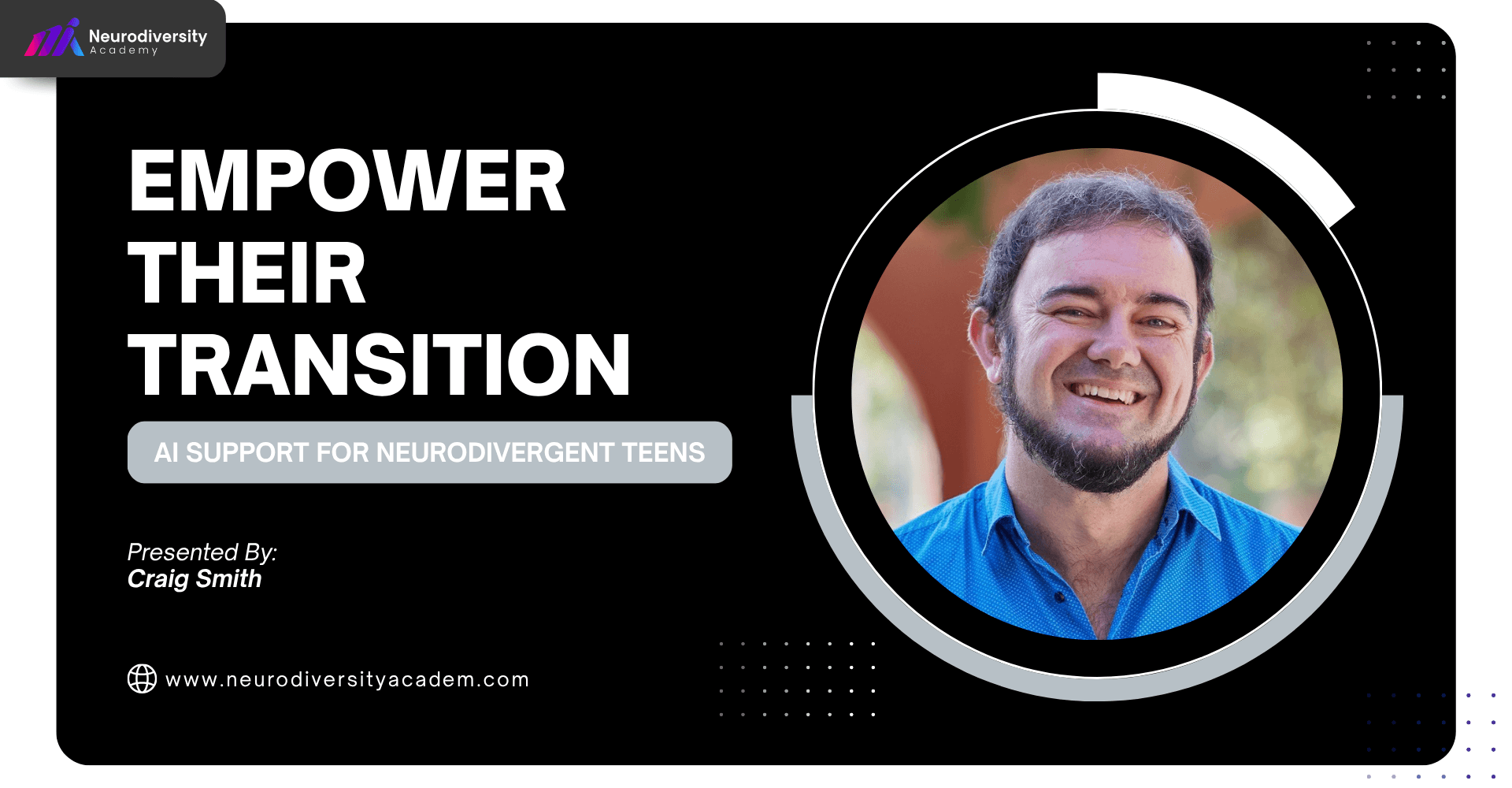Supporting Neurodivergent Teens at Home: Practical Strategies for Caregivers
Parenting a teenager is rarely straightforward, but supporting a neurodivergent teen adds an extra layer of complexity, beauty, and resilience to the journey. Neurodivergent teens may be autistic, have ADHD, dyslexia, dyspraxia, Tourette’s, or a combination of these and other cognitive differences. Each young person’s experience is unique—and as a caregiver, understanding and supporting that individuality can make all the difference.
This article explores practical, empathetic, and flexible strategies to help families build safe, connected, and empowering environments for their neurodivergent teenagers.
Understanding Neurodivergent Teenagers
Neurodivergent teens often experience the world differently from their neurotypical peers. Their sensory systems, executive functioning, communication styles, and learning preferences can lead them to feel misunderstood or out of sync with school expectations, social norms, and even family routines.
It’s essential for caregivers to remember that neurodivergence is not a deficit—it’s a different way of being. When support is grounded in respect and curiosity, rather than attempts to “fix,” teens are more likely to feel safe, validated, and capable.
Creating a Safe Space at Home
Home should be a sanctuary. For neurodivergent teens who may mask all day at school—suppressing their stimming, scripting conversations, or trying to follow confusing social rules—home must offer a place where they can drop the mask and just be themselves.
Start by setting expectations around mutual respect. This might include:
- Not forcing eye contact.
- Respecting and facilitating sensory preferences (e.g., dim lights, quiet zones).
- Allowing for downtime after school before engaging in chores or conversations.
- Providing emotional validation before problem-solving.
- Allow them to choose the time to approach a discussion over any personal issues. However, don’t make the mistake of allowing too much time to pass. Take a sundowner approach – try to resolve before bedtime.
- Allow them to lead on advocacy, outlining the next steps to be made.
- In situations where there is more than one neurodivergent teen, setting ground rules for mutual respect of individual needs.
Let them know that being different is not only accepted—it’s valued.
Establishing Consistent (But Flexible) Routines
Many neurodivergent teens thrive with predictable routines. A consistent morning or evening schedule can reduce anxiety and help manage transitions. However, too much rigidity can be stressful—especially when teens are exploring independence.
Strategies for balanced routines include:
- Using visual planners, calendar apps or whiteboards. Sharing calendars for booking appointments is critical for planning around school obligations, particularly senior school.
- Collaborating with your teen to build the schedule.
- Leaving “buffer time” between activities. Try to make appointments in school holidays if possible, particularly for medical or ancillary services assessments.
- Reviewing the schedule together at the start and end of each day. Shared calendars may only require a check-in every few days to make sure everything is on track.
Adjust routines as needed, based on feedback and observation. Flexibility within structure empowers teens to develop time management skills while accommodating their fluctuating energy and focus.
Supporting Executive Functioning Challenges
Executive functioning skills—like planning, organising, remembering, and transitioning—are often a challenge for neurodivergent teens. Rather than labelling this as laziness or defiance, try to understand what support looks like for your child.
Support might involve:
- Breaking large tasks into smaller, manageable steps.
- Creating to-do lists together.
- Using timers for activities or breaks. Incentives and rewards are also important.
- Gently coaching your teen(s) through sequences like getting ready for school. Prompts or reminders are essential here.
- Additionally, take steps the night before to organise as much as possible, uniforms and school bags in particular.
Be patient. These skills take time to develop and will grow with consistent, compassionate support.
Communicating Effectively
Neurodivergent teens may communicate in ways that differ from neurotypical norms. Some may use fewer words, prefer written over verbal communication, or find it hard to express emotions. Others may speak rapidly or focus on specific interests intensely.
To build open communication:
- Use clear, literal language.
- Avoid sarcasm or idioms unless they’re understood.
- Respect the need for processing time—don’t pressure immediate answers.
- Check in using tools like mood thermometers, colour charts, or messaging apps.
- Use your detective skills, you often know when something is wrong. Teens don’t like to communicate at the best of times, so proactive check-ins are sometimes needed.
- If you have a counsellor or psychologist, you may use this as an opportunity for a three-way connection. As a carer, you can open up discussions on topics you may think are an issue. Be patient with this process, it may take time to build trust with your teen. Start with minor things and build on these successes.
Above all, listen more than you speak. Teens want to be heard, not managed.
Encouraging Emotional Regulation
Emotional outbursts or shutdowns are not signs of a “bad attitude.” They’re often signals that a teen is overwhelmed, anxious, or misinterpreting social or sensory input. Helping your teen learn emotional regulation doesn’t mean punishing meltdowns—it means supporting recovery and prevention.
Strategies include:
- Creating a calming routine (e.g., weighted blankets, music, quiet time).
- Teaching emotional vocabulary through books or visual aids.
- Offering “break passes” for when emotions become too intense.
- Self-regulation can help teens to recognize signs of stress and request actions to circumvent impacts. Create awareness by discussing these signs.
- Modelling your own regulation strategies.
Regulation is learned through connection, not correction.
Working with Allied Health Professionals
Occupational therapists (OTs), psychologists, speech pathologists, and paediatricians can offer valuable insights and tools. Regular check-ins with professionals who understand neurodiversity can:
- Validate your strategies at home.
- Offer new techniques for communication or learning.
- Help teens build coping skills and resilience.
- Support diagnosis or adjustment plans for school or exams.
It’s important to work with professionals who take a strengths-based, affirming approach—not those who see neurodivergence as something to “treat away.”
Navigating School and Advocacy
Many neurodivergent teens struggle in mainstream schools due to inflexible teaching styles, sensory overload, or misunderstanding. Caregivers are often the bridge between home and school—and that role can be both empowering and exhausting.
Helpful actions include:
- Keeping records of communication and incidents.
- Collaborating on Individual Learning Plans (ILPs).
- Advocating for adjustments like reduced homework, breaks, or alternative assessments.
- Often letters or support or recommendations from allied health professionals can help to support your requests.
- Connecting with local advocacy groups or support networks.
Encourage your teen to share their school experiences and involve them in planning their supports. This builds confidence and models self-advocacy.
Celebrating Strengths and Interests
Neurodivergent teens often have deep, passionate interests—whether it’s video games, trains, drawing, coding, or animals. These interests are not distractions; they are gateways to learning, expression, and confidence.
Celebrate and support these interests by:
- Creating time and space for them.
- Linking interests to learning goals.
- Encouraging clubs, online communities, or shared projects.
- Seeing them as part of your teen’s identity and future.
When teens feel competent and seen in their interests, their sense of self-worth grows.
The Power of Humour and Connection
Humour is a powerful tool in any household. It diffuses tension, creates shared memories, and reminds everyone that joy matters. Embrace silliness. Celebrate quirky routines. Laugh together—not at each other.
Connection doesn’t always look like deep talks or hugs. Sometimes it’s watching a favourite show together, sending memes, or sitting silently in the same room. Let your teen lead in how they want to connect.
Preparing for Adulthood
As your teen grows, the goal isn’t independence at all costs—it’s interdependence. Help them gradually build life skills like:
- Cooking simple meals.
- Managing money with guidance.
- Navigating transport or digital tools.
- Booking appointments or asking for help.
Work with your teen to develop a vision for their future, exploring education, work, or supported living options that align with their needs and strengths.
Conclusion: You Are Not Alone
Supporting a neurodivergent teen is a journey filled with learning, patience, mistakes, and growth—for both the teen and their caregivers. There is no perfect roadmap, but there are values that guide the way: empathy, flexibility, trust, and joy.
Caregivers who approach this journey with curiosity and compassion provide their teens with the most important gift of all: a foundation of love that honours exactly who they are.
You are not alone—and neither is your teen.
Author Acknowledgement: Based on the original work by Leanne Gaul





